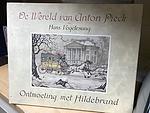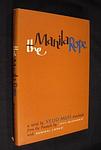The Greatest "Fiction, Engineering" Books of All Time
Click to learn how this list is calculated.
This list represents a comprehensive and trusted collection of the greatest books. Developed through a specialized algorithm, it brings together 300 'best of' book lists to form a definitive guide to the world's most acclaimed books. For those interested in how these books are chosen, additional details can be found on the rankings page.
Genres
The category of "Engineering" in books encompasses a wide range of topics related to the design, development, and application of various technologies and systems. This includes fields such as mechanical, electrical, civil, chemical, and aerospace engineering, as well as sub-disciplines like robotics, materials science, and environmental engineering. Books in this category may cover theoretical concepts, practical applications, case studies, and emerging trends in the field. They are aimed at students, professionals, and enthusiasts who seek to deepen their knowledge and skills in engineering.
Countries
Date Range
Reading Statistics
Click the button below to see how many of these books you've read!
Download
If you're interested in downloading this list as a CSV file for use in a spreadsheet application, you can easily do so by clicking the button below. Please note that to ensure a manageable file size and faster download, the CSV will include details for only the first 500 books.
Download-
1. Extinction by Thomas Bernhard
"Extinction" is a novel that explores the dark and complex themes of family, identity, and history through the eyes of its protagonist, a professor living in Rome. When he receives news of the deaths of his parents and brother in a car accident, he is forced to confront his past and his Austrian heritage. The narrative delves into his thoughts and feelings, his criticisms of his family and society, and his philosophical musings on life and death, all while he prepares to return to his family's estate for the funeral. The novel is renowned for its dense, stream-of-consciousness style and its unflinching examination of the human condition.
-
2. Camera Obscura by Nicolaas Beets
"Camera Obscura" is a collection of humorous and satirical sketches that provide a vivid picture of 19th-century Dutch society. It explores the social and domestic life of the middle classes, their habits, their social pretensions, their pleasures and their follies. The book also includes a series of character studies, often based on the author's acquaintances, which are presented in a light-hearted and often ironic tone.
-
3. The Manila Rope by Veijo Meri
"The Manila Rope" is a novel that explores the experiences of a group of Finnish soldiers during World War II. The narrative follows the soldiers as they are tasked with transporting a massive, cumbersome coil of rope across challenging terrains, a task that becomes increasingly absurd and futile as the story progresses. The book uses this premise to delve into the harsh realities and absurdities of war, highlighting the human capacity for resilience and camaraderie in the face of adversity.
-
4. The Swarm by Frank Schatzing
"The Swarm" is a science fiction novel that explores the disastrous consequences of mankind's exploitation of the world's oceans. The narrative follows a group of scientists around the world as they try to understand a series of inexplicable, catastrophic natural disasters. They eventually discover that these events are not random but are the result of a collective intelligence in the sea, a swarm of marine life that has decided to fight back against humanity's destruction of their habitat. The book combines elements of ecological thriller, disaster novel, and speculative fiction as it explores the potential consequences of human interference with the natural world.
-
5. Midnight In Chernobyl by Adam Higginbotham
"Midnight In Chernobyl" is a non-fiction book that tells the story of the 1986 Chernobyl nuclear disaster. The book provides a detailed account of the events leading up to the explosion, the immediate aftermath, and the long-term effects of the disaster. It also explores the political and social context of Soviet Ukraine at the time, and the impact that the disaster had on the country and the world. The book draws on interviews with survivors, officials, and experts, as well as archival documents and scientific research, to provide a comprehensive and compelling narrative of one of the worst nuclear accidents in history.
-
6. Falling Free by Lois McMaster Bujold
In this science fiction narrative, the story revolves around an engineer who is assigned to a space station where genetically engineered humans, designed with four arms and no legs for zero-gravity work, are being bred by a corporation for economic gain. When the company decides to abandon the project, viewing these beings, known as "quaddies," as obsolete and a liability, the engineer faces a moral dilemma. He must choose between his own safety and career or the welfare of the quaddies. Ultimately, he decides to rebel against the corporation, leading a daring escape plan to save the quaddies from being decommissioned and to find them a new home where they can live free.
Reading Statistics
Click the button below to see how many of these books you've read!
Download
If you're interested in downloading this list as a CSV file for use in a spreadsheet application, you can easily do so by clicking the button below. Please note that to ensure a manageable file size and faster download, the CSV will include details for only the first 500 books.
Download




